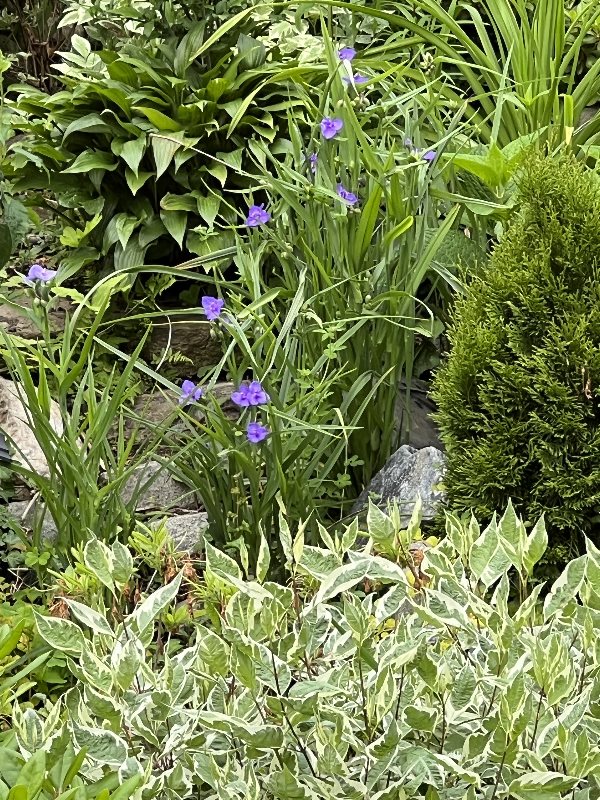
Ashley Davidoff
TheCommonVein.net
Purple spiderwort, also known as Tradescantia pallida or Setcreasea pallida, is a specific species of spiderwort that is highly valued for its vibrant purple foliage. Here are some specific details about the purple spiderwort:
- Appearance: The purple spiderwort has long, slender leaves that are a deep purple color. The leaves are typically around 7-15 cm (3-6 inches) long and have a succulent texture. The undersides of the leaves may appear a purplish-green or maroon color.
- It flowers in the morning hours and petals closes ain the fternoon
- Growth habit: Purple spiderwort is a trailing or cascading plant that forms dense clumps. It can reach a height of around 30-45 cm (12-18 inches) and spread outwards as it grows. The stems are somewhat fragile and tend to trail or sprawl along the ground or over the edges of containers.
- Environmental requirements: Purple spiderwort prefers warm temperatures and grows well in full sun to partial shade conditions. It is not frost-tolerant and is best suited for USDA hardiness zones 9-11. The plant can adapt to various soil types but prefers well-draining soil.
- Maintenance: Purple spiderwort is relatively low-maintenance. It requires regular watering to keep the soil slightly moist but not waterlogged. Overwatering may lead to root rot. Fertilization is not often necessary, but a balanced fertilizer applied during the growing season can promote healthy growth.
- Propagation: Purple spiderwort can be propagated through stem cuttings. Simply take a cutting from an established plant, remove the lower leaves, and place it in a well-draining potting mix. Keep the cutting moist and it should root within a few weeks.
- Uses: Purple spiderwort is primarily grown for its attractive foliage. It can be used as a ground cover, in hanging baskets, or as a trailing accent in mixed container plantings. It adds a pop of color and texture to gardens and is often appreciated for its contrasting effect when planted alongside other green or variegated plants.
Purple spiderwort is a popular choice among gardeners who want to introduce vibrant purple hues into their landscape or indoor spaces. Its striking foliage and easy care requirements make it an appealing plant for both beginners and experienced gardeners alike
